Exclusive Read
Jingmai Chronicles —
Step into the World's First Tea-Themed World Heritage Site
Planned by the _ Editorial Team of “Tea Dao”
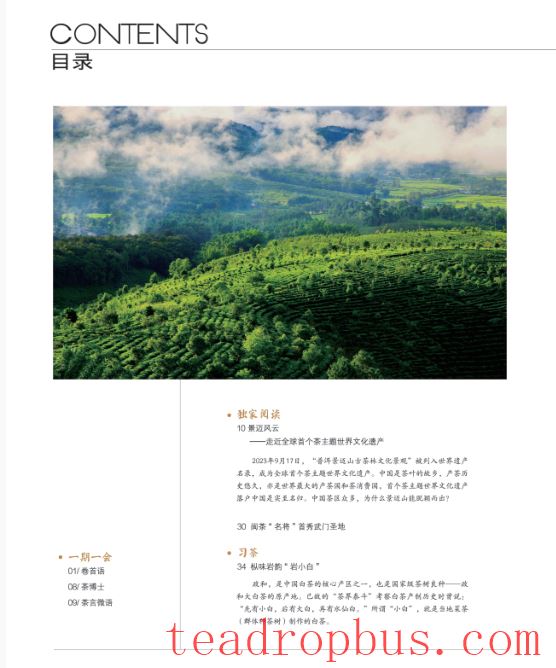
Jingmai Mountain is located in the southwestern border of Yunnan Province and is renowned worldwide for its Pu'er tea. According to historical records, from the 10th to 14th centuries, the ancestors of Jingmai Mountain discovered wild tea trees during their migrations. They built villages within the forests and cultivated tea trees around them, developing a technique for planting tea under forest cover. This is the culmination of Jingmai Mountain people's long-term harmonious coexistence with nature.
On September 17, 2025, the “Pu'er Jingmai Mountain Ancient Tea Forest Cultural Landscape” was inscribed on the World Heritage List, becoming the world's first tea-themed world heritage site. China, the birthplace of tea, has a long history of tea production and is also the world's largest producer and consumer of tea. The establishment of the first tea-themed world heritage site in China is fitting. With numerous tea-producing regions in China, why did Jingmai Mountain stand out? A simple phrase like “harmony between man and nature” seems insufficient. The people of Jingmai Mountain revere and pass down tea trees as part of their lives.
Why Jingmai Mountain for the Tea Cultural Landscape World Heritage?
By Chen Yongguang
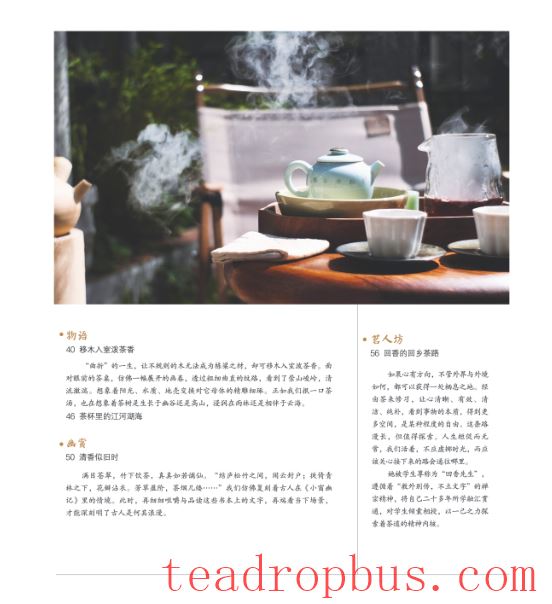
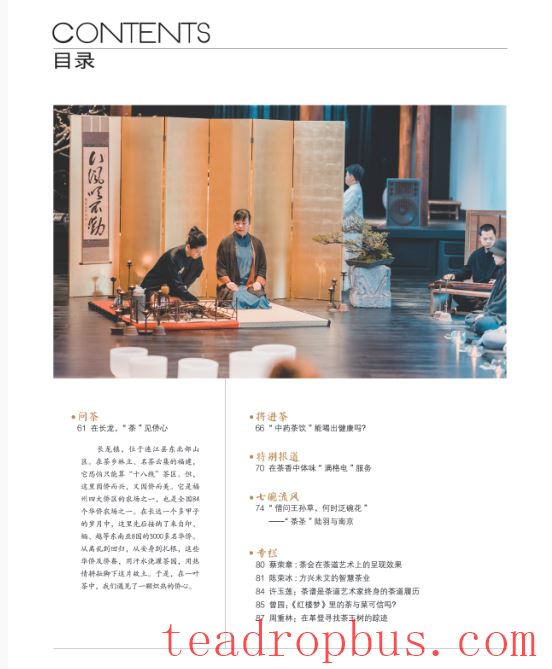
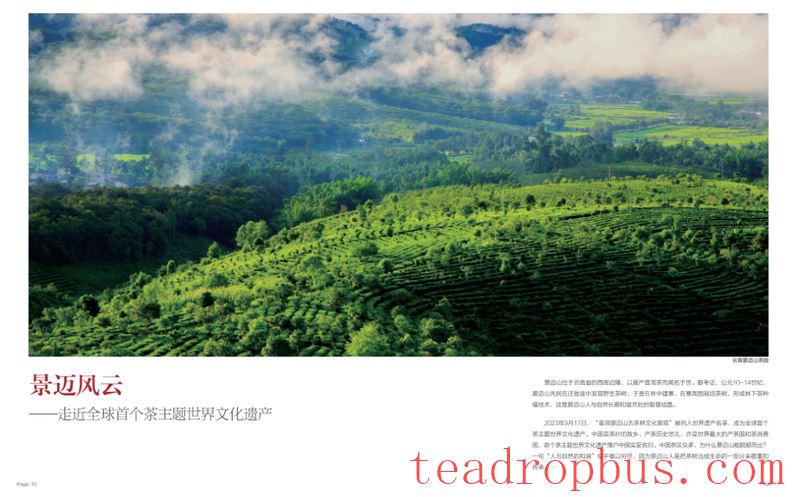
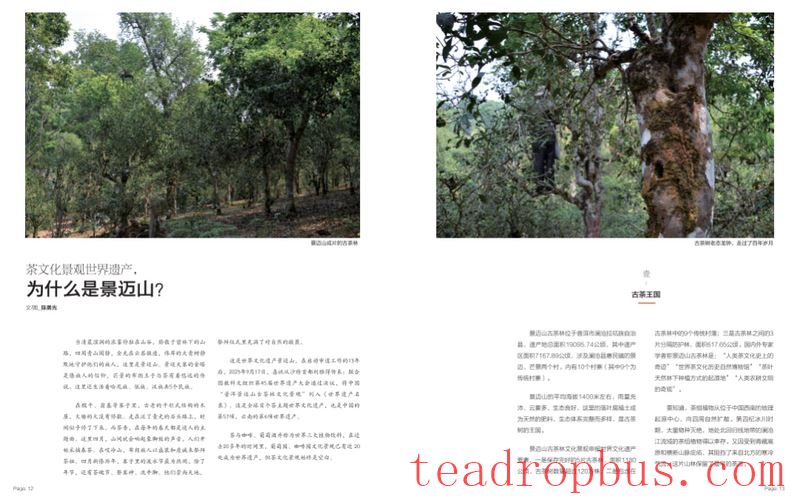
The ancient tea forests of Jingmai Mountain are a typical example of the continuous tea-planting tradition under forest cover by indigenous peoples in southwestern China, which aligns perfectly with the requirement that the heritage site must be a model of indigenous peoples' protection and rational utilization of mountain and forest resources.
The mountains are home to many rare birds and thousands of insect species, forming a healthy ecosystem. The unique forest environment imparts a special orchid fragrance and honey flavor to Jingmai tea, which is rich, clear, sweet, and has a long-lasting aftertaste with a slight bitterness, making it highly recognizable by region.
…
The “Future Star” of Chinese Tea's World Heritage Where Is It?
By Yang Wei
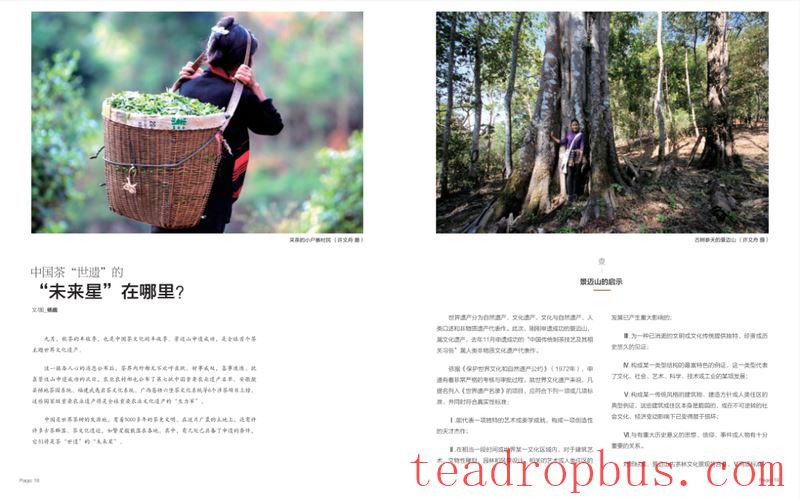
The day after Jingmai Mountain's successful inscription, the Ministry of Agriculture and Rural Affairs also announced the seventh batch of important agricultural heritage sites in China. Projects related to tea, such as the terraced tea gardens system of She County in Anhui, the Wuyi Rock Tea cultural system in Fujian, and the Liubao Tea cultural system in Guangxi, were included in the list. These national important agricultural heritage sites will be a fresh force in the global important agricultural heritage.
China is the origin of the world's tea trees and has over 3,000 years of Tea culture. On this vast land, there are still many ancient tea clusters and tea cultural relics scattered like stars. Several of these have met the conditions for nomination and will be the “future stars” of tea world heritage.
How Can “National Tea” Revive?
By Wen Yan
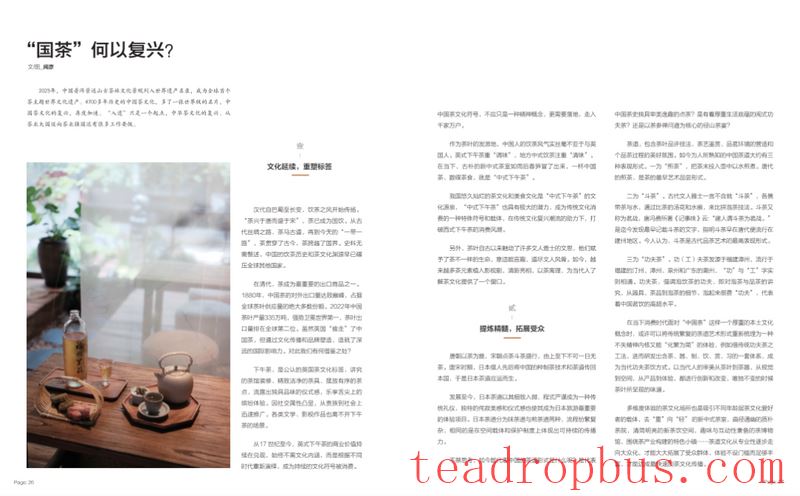
In 2025, the ancient tea forest cultural landscape of Pu'er Jingmai Mountain in China was listed as a World Heritage Site, becoming the world's first tea-themed world heritage site. The 4,700-year-old Chinese tea culture now has an additional world-renowned name, accelerating the revival of Chinese tea culture. However, being inscribed as a world heritage site is just the beginning, and much work remains to transform China from a major tea-producing country into a tea powerhouse.